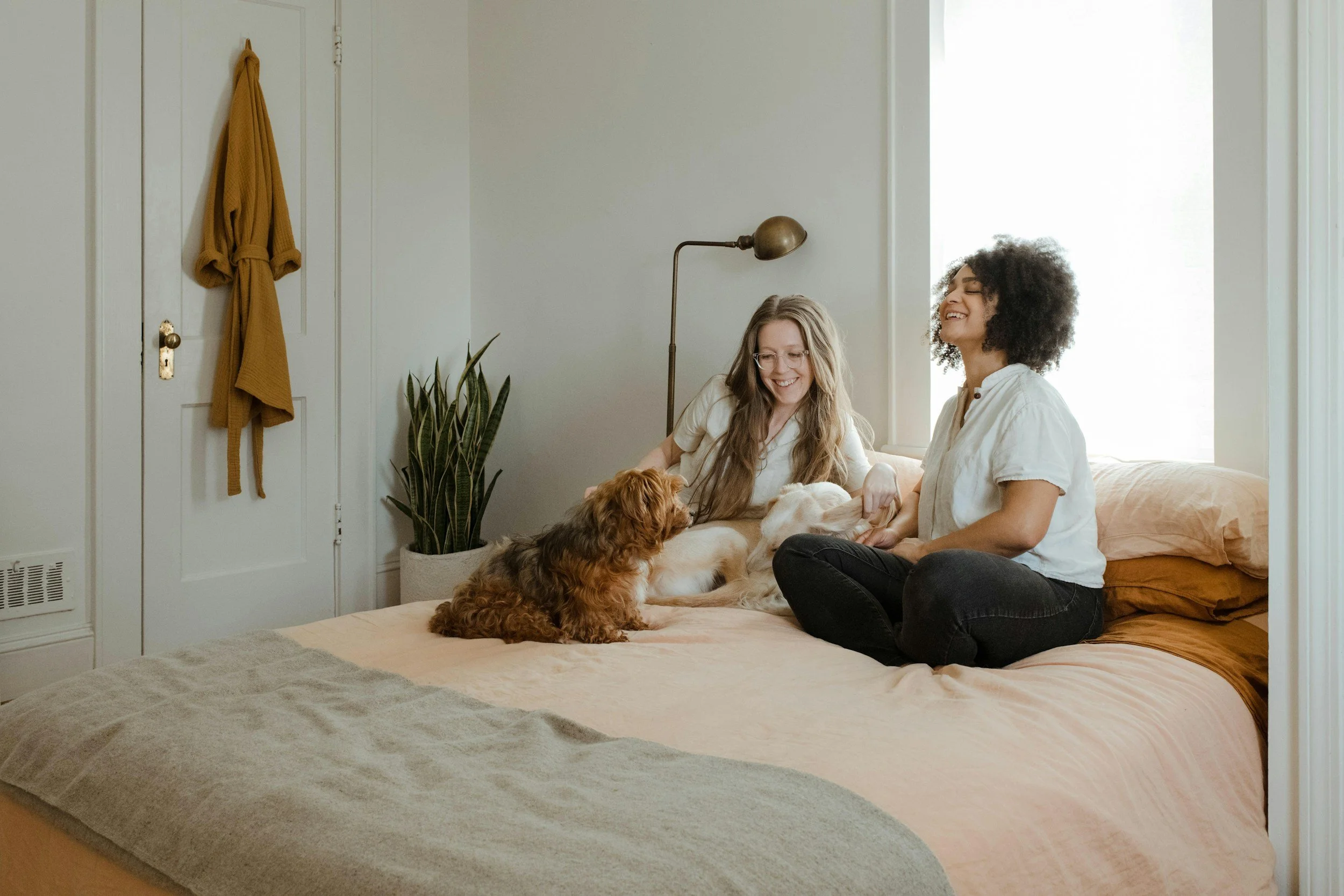How to free yourself from the 'should' anxiety trap
I shouldn't be writing this blog this week. I had a plan to write something else, that’s already about 70% done. But someone reminded me it’s World Mental Health Day today and on the way home from work, my mind was roaming wild and free. I thought about how this week I’ve been suppressing my inspiration to write a blog about anxiety, expectations and acceptance.
So I decided to throw my expectations out of the window and accept I wanted to change the plan (see what I did there?) This was supposed to be an evening finishing off my already planned blog that fit with my already planned schedule. Instead, I frantically started to write this on my way home from work because that’s exactly what I felt like doing.
Becoming aware of your internal dialogue
A few years ago (unbeknownst to me at the time) my thought process would’ve sounded something like this…
‘ I should go and do what I said I would do. Why do I find it impossible to be self-disciplined? Why does my motivation fluctuate so much? I should be able to do this. I made a plan, so I should stick to the plan. I can’t just go deciding I want to do something else.’
(By the way, at this point this blog is a party of one (me) and by its very nature is a want, rather than a should. Therefore I can decide to do whatever the heck I want with it. That’s more a reminder for me, than you).
The ‘should’ and anxiety
The reason I’m telling you about that internal string of shoulds, is because that's what has historically fuelled feelings of anxiousness in me. But that is not where I'm at anymore! So I want to share with you how I experience anxiety and how I’ve managed to significantly reduce feelings of anxiousness through the act of acceptance.
I'm not someone that has suffered from clinical anxiety so I can't speak directly to that (however this advice may very well apply to those that do.) I don’t suffer from panic disorder or generalised anxiety disorder. But, I am someone who has experienced symptoms of anxiety - bouts of feeling scared and uneasy and not seeming to know why, episodes of hyperventilation, an overwhelming sense of not being able to cope. I choose to call this ‘anxiousness’ as opposed to having anxiety, which is just personal to my own experience of it.
I really think it's part of the everyday human condition. Part of the chaos, the uncertainty, the pressure and the expectations - both internal and external, that we all find ourselves living in. It's a shared human experience - which is why we should all talk about it.
Over the years, I’ve made one MAJOR observation about when anxiousness crops up for me, and it’s this.
Every single time I’ve experienced a moment or episode of anxiousness, it’s been a result of being stuck between the reality and a ‘should’. Not necessarily in one moment, but often an accumulation of shoulds that have dominated my internal dialogue.
For example...
Something happening in my personal life that is making me feel sad or worried, and I’m focused on the fact that I should be positive and I should feel fine and I should be as productive as usual.
An expectation I have of myself that I should be a certain way or do a certain thing, but the reality is that I’m not doing it and sometimes, don’t even want to do it. But I think I should.
All of these things are a complete resistance to reality. A refusal to accept the situation for what it is, which builds up an internal sense of tension that becomes overwhelming. That results in a sense of feeling trapped or frustrated or emotional or tired or panicked - anxiety.
So how can you manage this?
Acceptance.
If you accept all that you are and feel, objectively, constructively and without judgement, without forcing expectations or shoulding all over it, it becomes so much easier to manage your thoughts before they hit a point of anxiety.
Find your route to acceptance
Mindfulness is a good method to build the foundation to be more accepting of yourself. It provides a space for you to observe without judgement or self-criticism.
My route is through journaling. Journaling has helped me to have an outlet for all that’s in my head (which in itself is a relief, it's mayhem in there sometimes!) It also lets me look more objectively at my thoughts and feelings which is the starting point for acceptance.
Understand when you are resisting
It was quite a process for me to realise it was the tension between reality and the ‘should’ that was the root of my anxiousness. Something that helped was understanding what resistance felt like in my body, a process I learned through journaling, or you may observe through mindfulness.
I know when I’m writing about something and I’m caught in a should or refusing to accept the reality of how I feel, because I have a physical sensation of tension high up in my chest, sometimes rising to the back of my throat. It sounds a bit hoohar but it’s something I consistently observe in myself and something that’s recognised in research about how emotions physically manifest in the body. If you want to geek out, check out this paper.
The act of observing these physical feelings has helped me to notice when I’m resisting the reality of how I feel or the situation I'm in, so I can move towards acceptance and release myself from it building into an experience of anxiety.
What about you?
Are you giving yourself a hard time with the 'shoulds'? In refusing to accept that you can't be everything and do everything all of the time? In setting unrealistically high expectations of yourself that are leading to feelings of anxiety?
I’d be really interested to hear if anyone else’s experience of anxiety is the same? Drop me a message on Instagram or LinkedIn to share.











